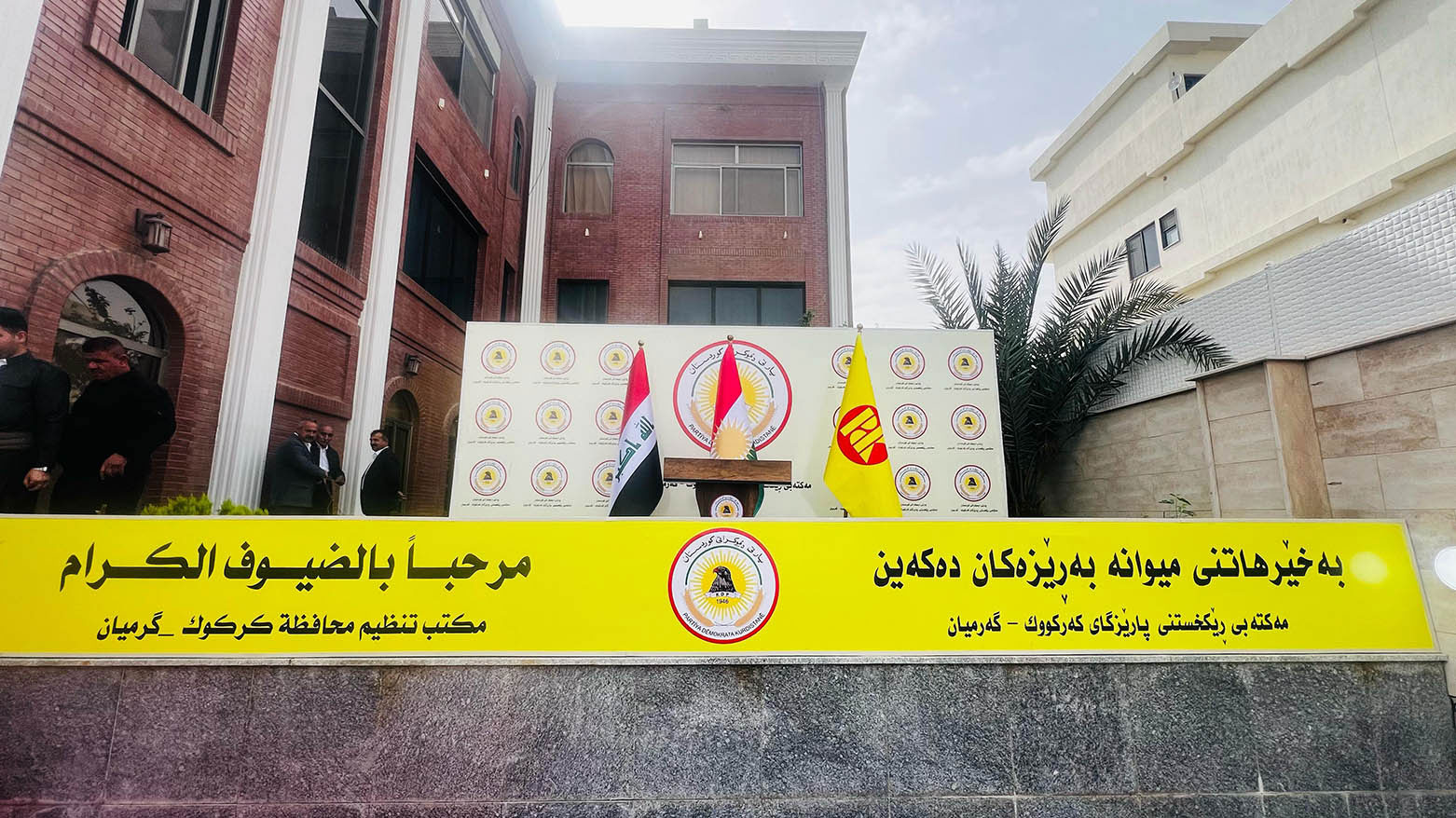KDP Returns to Kirkuk After 8-Year Absence
“We have returned to Kirkuk to be part of the solution to the city's problems,” Hiwa Ahmed, the head of the KDP’s Kirkuk-Garmiyan office, declared to an audience of senior party officials and local supporters.

By Kamaran Aziz
ERBIL (Kurdistan24) – In a move seen as both symbolic and strategic, the Kurdistan Democratic Party (KDP) officially reopened its Kirkuk-Garmiyan Organizational Office on Saturday,—nearly eight years after its withdrawal following the dramatic events of October 16, 2017.
The ceremony, held on Arafah Street in the heart of Kirkuk, marked the KDP’s determined return to a city long regarded as a political and ethnic flashpoint in Iraq.
Hiwa Ahmed, the head of the KDP’s Kirkuk-Garmiyan office, addressed the gathering with a message of responsibility, cooperation, and constitutional order. “We have returned to Kirkuk to be part of the solution to the city's problems,” he declared to an audience of senior party officials and local supporters.
“Today,” he continued, “we formally announce the reopening of our office in Kirkuk governorate. After eight years, we return at a time when the world and the Middle East are undergoing significant changes—and we believe these changes will continue.”
The KDP, which had been absent from Kirkuk since its forced withdrawal in the aftermath of Baghdad's military operation to bring the Kurdistani territories under its control in 2017, emphasized that its return was not about reviving past rivalries, but about fostering unity and working within the Iraqi constitutional framework.
“The situation in Kirkuk remains sensitive,” Ahmed noted, “and the KDP understands its responsibility to the people of both Kurdistan and Iraq.”
He stressed the need for Kurdish solidarity, stating, “Now more than ever, unity among the Kurdish people is essential.”
In a gesture aimed at political reconciliation and practical governance, Ahmed called on all political forces in Kirkuk to return to the constitution and collaborate on solving the province’s persistent issues. “We are here to work together with other parties in Kirkuk governorate to resolve the ongoing issues,” he said.
The KDP’s return to Kirkuk comes at a time when regional dynamics are rapidly shifting, and Iraq’s internal politics remain fragile. The reopening of its office is expected to re-energize Kurdish political engagement in the disputed territories and may serve as a litmus test for broader efforts at federal cooperation and ethnic coexistence.
The 11:00 a.m. reopening ceremony was attended by senior KDP officials and local party members, signaling the party’s renewed intent to reestablish its presence and influence in Kirkuk—a city claimed by both the federal government and the Kurdistan Region.
The KDP’s re-entry into Kirkuk’s political landscape is likely to reshape local alliances and rekindle hopes for a more inclusive and negotiated resolution to the longstanding issue of the Kurdistani territories outside the KRG's administration.
